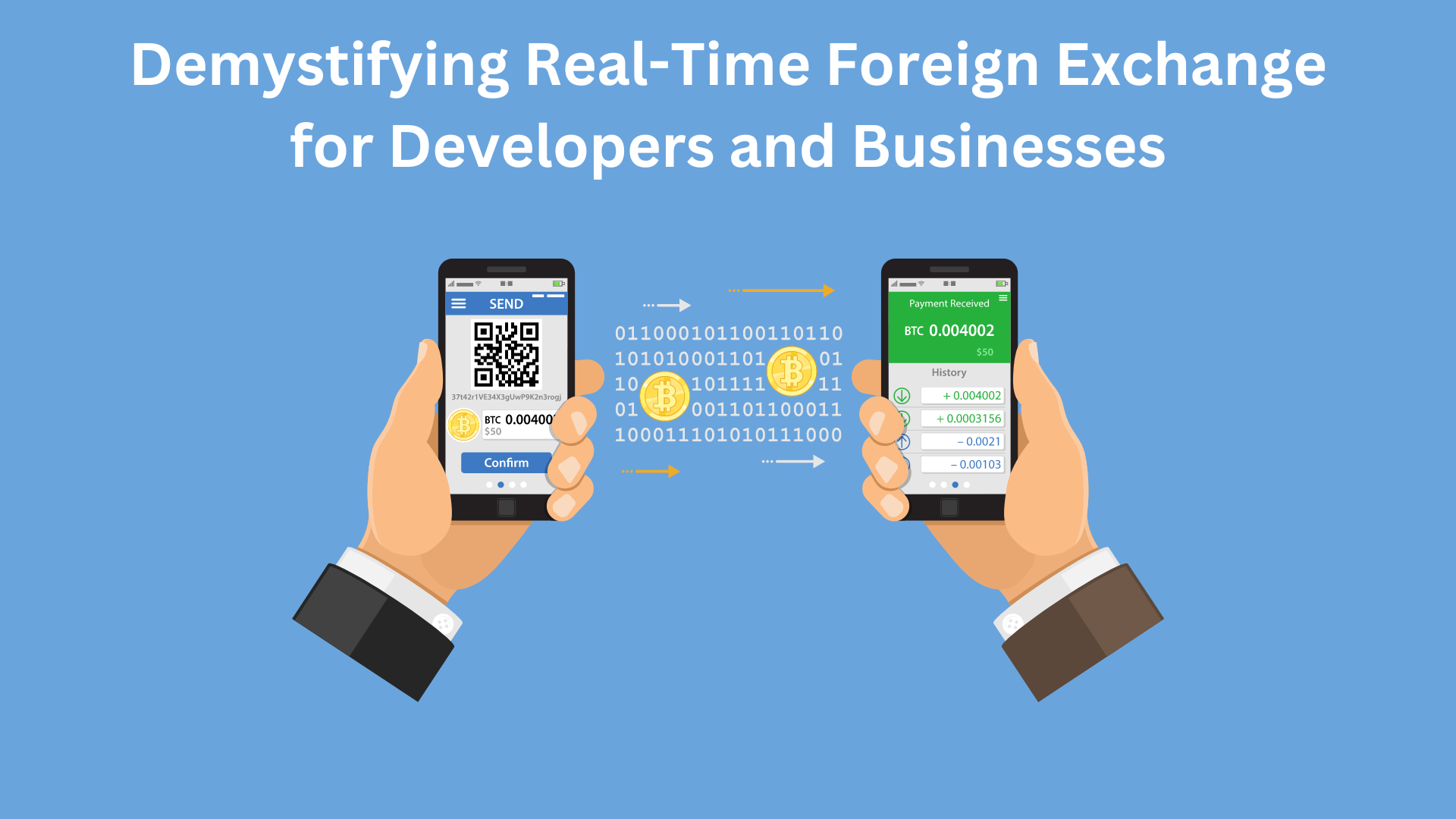In today's interconnected global economy, real-time foreign exchange plays a crucial role in facilitating international transactions and enabling businesses to thrive in a borderless marketplace. For developers and businesses alike, understanding the dynamics of real-time foreign exchange is essential for optimizing financial operations and harnessing opportunities for growth.

What is Real-Time Foreign Exchange?
Real-time foreign exchange, often abbreviated as forex or FX, refers to the decentralized global marketplace where currencies are traded. Unlike stock markets, the forex market operates 24 hours a day, five days a week, allowing for continuous trading across different time zones. Real-time foreign exchange rates fluctuate constantly due to various factors such as geopolitical events, economic indicators, and market sentiment.
Importance for Developers
For developers, integrating real-time foreign exchange data into financial applications and platforms is paramount. Access to accurate and up-to-date exchange rates enables developers to create robust solutions for currency conversion, international payment processing, and risk management. APIs (Application Programming Interfaces) provided by forex data providers empower developers to retrieve real-time exchange rates and incorporate them seamlessly into their applications.
Benefits for Businesses
Businesses that engage in international trade or have operations in multiple countries rely on real-time foreign exchange to manage currency risk and optimize cash flow. By monitoring exchange rates in real-time, businesses can make informed decisions regarding pricing strategies, hedging strategies, and timing of foreign currency transactions. Additionally, access to real-time forex data facilitates smoother cross-border transactions and enhances transparency in financial reporting.
Challenges and Considerations
While real-time foreign exchange offers numerous benefits, it also presents challenges and considerations for developers and businesses. Ensuring data accuracy and reliability is paramount, as even small discrepancies in exchange rates can have significant financial implications. Furthermore, developers must adhere to regulatory requirements and best practices when handling sensitive financial data to mitigate security risks and maintain compliance.

Conclusion
Real-time foreign exchange is a cornerstone of the modern global economy, enabling seamless currency trading and financial transactions across borders. For developers, integrating real-time forex data into applications empowers businesses to optimize financial operations and deliver enhanced user experiences. Likewise, businesses that leverage real-time forex data gain a competitive edge by making informed decisions and navigating the complexities of the international marketplace with confidence.
FAQs:
1. How can businesses mitigate currency risk in real-time foreign exchange transactions?
Businesses can mitigate currency risk by implementing hedging strategies such as forward contracts, options, and currency swaps. Additionally, maintaining a diversified currency portfolio can help offset potential losses due to adverse exchange rate movements.
2. What role do forex brokers play in real-time foreign exchange trading?
Forex brokers act as intermediaries between buyers and sellers in the forex market, providing access to liquidity and executing trades on behalf of their clients. They offer trading platforms, market analysis, and leverage to facilitate forex transactions.
3. What are the major currency pairs traded in the real-time foreign exchange market?
The major currency pairs, also known as "majors," include EUR/USD, USD/JPY, GBP/USD, and USD/CHF. These pairs account for the majority of trading volume in the forex market and are characterized by high liquidity and tight spreads.
4. How does real-time foreign exchange impact global businesses operating across multiple countries?
Real-time foreign exchange allows global businesses to manage currency exposure, streamline cross-border transactions, and optimize financial performance. By monitoring exchange rates in real-time, businesses can adapt to market fluctuations and capitalize on opportunities for growth.